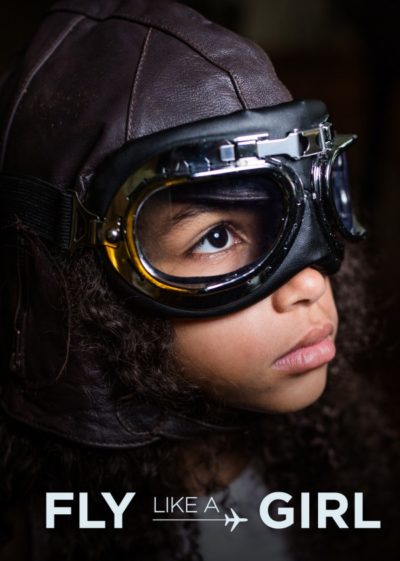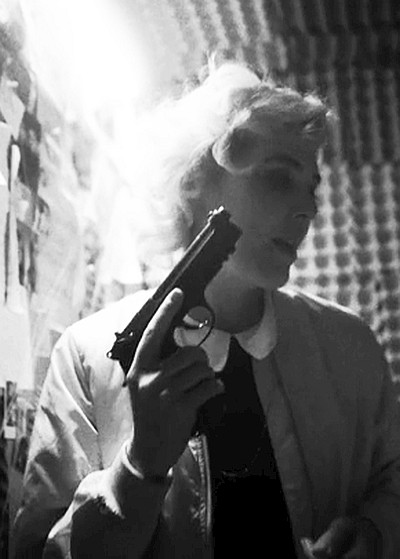★★½
“Dubbed to death”
 This is another in a recent burst of Thai action heroine movies, including The Secret Weapon. But it’s less successful, although the deficit is not entirely the movie’s fault. The only version I could find was a dubbed one on YouTube: over the years, I have developed a strong preference for watching films in their original language, unless absolutely necessary. Here, that proved to be the case, and it was basically a reminder of why I prefer subtitles. This isn’t just dubbed into English, it was dubbed into English by Indians. Imagine watching a gangster film set in New York, where everyone has a Swedish accent. It’s immensely off-putting, and I had great difficulty in getting past it.
This is another in a recent burst of Thai action heroine movies, including The Secret Weapon. But it’s less successful, although the deficit is not entirely the movie’s fault. The only version I could find was a dubbed one on YouTube: over the years, I have developed a strong preference for watching films in their original language, unless absolutely necessary. Here, that proved to be the case, and it was basically a reminder of why I prefer subtitles. This isn’t just dubbed into English, it was dubbed into English by Indians. Imagine watching a gangster film set in New York, where everyone has a Swedish accent. It’s immensely off-putting, and I had great difficulty in getting past it.
The plot has a hitwoman, Chris (Kingpayome), who has worked for Mr. Ralph (Macdonald) since before the birth of her daughter, Rin (Prommart). The daughter is being brought up in the family business, along with another girl, Joi, who was rescued from a crime scene. However, Rin is now in those difficult teenage years, and is being distracted by a schoolgirl crush on Sun, a senior at her college. This causes her to lose focus and make mistakes in the assassinations she carries out with her mother, for “Ralph Elimination Ltd”. Coming under pressure from her boss, Chris decides to take the liability of Sun out of the picture. Needless to say, Rin is not exactly happy about this decision.
It’s better in the second half then the first, once it stops being badly-dubbed teen soap-opera, and turns into badly-dubbed action, which is tolerable. Things aren’t exactly what they seem initially, and the dynamics of the situation become considerably more interesting as a result. I’ve seen enough of this kind of thing to feel I knew where this was going. I was expecting it to have Chris eventually coming to terms with her daughter’s wish for a normal life, and then protecting Sun from Ralph’s murderous intentions. No. Does not happen. Well… it kinda does. But the way it gets there, is in a rather more plausible manner, with everyone from Chris to Ralph having credible motivation for their actions.
Outside of the dire dub, the main issue is perhaps the somewhat underwhelming action, both in quantity and quality. It’s only okay in both departments, except for Rin’s final assault, which is a nicely-staged attack on Ralph’s headquarters. That is a shame, since the script is one of the better ones, and Prommart feels a little like she is channeling Natalie Portman in Leon. Though that might just be a combination of her hairstyle, and the way the movie ends. It does teeter over into melodrama on occasion, not least with a lengthy, emotive video message from Chris to her daughter. Overall, however, there is an impressive fatality rate, and it would likely be close in entertainment value to the preceding entries – if only it was available in a similar format.
Dir: Isara Nadee
Star: Metinee Kingpayome, Ray Macdonald, Nitchanart Prommart, Phiravich Attachitsataporn
a.k.a. Ladies First





 A decade after the splattery joy which was
A decade after the splattery joy which was 
 Daphne Wool (Varela) has finally had enough of her abusive husband, so has killed him, chopping up the corpse and keeping it in a storage locker. Which actually is a good thing, because it turns out he was wanted by the Mob, and there was a price on his head. For their “help” in carrying out the hit, Daphne and pal Tony Steele (Cappello) are rewarded, but things go further. Daphne becomes a full-time assassin for the gangsters, learning to kill with everything from a paper-clip up, while Tony acts as her facilitator. However, they quickly become a liability to the organization, and are given a “poison pill” contract, being sent to kill weapons inventor Vincent McCabe.
Daphne Wool (Varela) has finally had enough of her abusive husband, so has killed him, chopping up the corpse and keeping it in a storage locker. Which actually is a good thing, because it turns out he was wanted by the Mob, and there was a price on his head. For their “help” in carrying out the hit, Daphne and pal Tony Steele (Cappello) are rewarded, but things go further. Daphne becomes a full-time assassin for the gangsters, learning to kill with everything from a paper-clip up, while Tony acts as her facilitator. However, they quickly become a liability to the organization, and are given a “poison pill” contract, being sent to kill weapons inventor Vincent McCabe. Football is known as “The beautiful game,” but you wouldn’t know it based on this documentary, which seems perversely intended to remove anything like that from its topic. It focuses on
Football is known as “The beautiful game,” but you wouldn’t know it based on this documentary, which seems perversely intended to remove anything like that from its topic. It focuses on  This begins, literally, with a bang. We first meet the heavily pregnant Maria (Docampo), carrying a rifle and preparing to leave her house. A man rises from the floor, and after a struggle for the gun, it goes off, and he drops back down. She hits the road in their pick-up truck, fearful of what she had done, and intending to head back to Naicó, the town where she was born. However, it’s not long before the people she meets on the road, seek to dissuade her from going there. It seems like everyone has a weird story about why her destination is not a good idea, from mysterious lights that abduct you, to a cult of blond people with possible Nazi connections.
This begins, literally, with a bang. We first meet the heavily pregnant Maria (Docampo), carrying a rifle and preparing to leave her house. A man rises from the floor, and after a struggle for the gun, it goes off, and he drops back down. She hits the road in their pick-up truck, fearful of what she had done, and intending to head back to Naicó, the town where she was born. However, it’s not long before the people she meets on the road, seek to dissuade her from going there. It seems like everyone has a weird story about why her destination is not a good idea, from mysterious lights that abduct you, to a cult of blond people with possible Nazi connections. Margo Crane (DelaCerna) has been brought up by her native American father, since her mother walked out on them several years ago. Under his guidance, they have become self-sufficient, and Margo has become a crack shot. However, her creepy uncle ends up having sex with the teenager, an incident for which she gets blamed, ruining her life. She resolves to apply her shooting skills on him, only for the resulting incident to become a tragedy. Margo strikes out on her own up the Stark river, in search of her absent mother. Doing so, she meets a variety of people, then has to try and reconnect with a woman who now has her own life, one not necessarily helped by the unexpected arrival of a teenager.
Margo Crane (DelaCerna) has been brought up by her native American father, since her mother walked out on them several years ago. Under his guidance, they have become self-sufficient, and Margo has become a crack shot. However, her creepy uncle ends up having sex with the teenager, an incident for which she gets blamed, ruining her life. She resolves to apply her shooting skills on him, only for the resulting incident to become a tragedy. Margo strikes out on her own up the Stark river, in search of her absent mother. Doing so, she meets a variety of people, then has to try and reconnect with a woman who now has her own life, one not necessarily helped by the unexpected arrival of a teenager. This documentary is about the field of women in aviation, combining archive footage with interviews, covering the range from those who aspire to fly (giving their Lego aircraft lady pilots!) to those who have been into space, fought combat missions in the Middle East or dodged death in aerobatic displays. There’s not any particular structure to proceedings, choosing instead to bounce around between its topics and subjects. This helps keep things fresh, yet at the cost of any narrative beyond, I guess, “Women can do anything men can”? Which, to be fair, deserves saying in the aviation field particularly: how much strength is needed to handle a joystick?
This documentary is about the field of women in aviation, combining archive footage with interviews, covering the range from those who aspire to fly (giving their Lego aircraft lady pilots!) to those who have been into space, fought combat missions in the Middle East or dodged death in aerobatic displays. There’s not any particular structure to proceedings, choosing instead to bounce around between its topics and subjects. This helps keep things fresh, yet at the cost of any narrative beyond, I guess, “Women can do anything men can”? Which, to be fair, deserves saying in the aviation field particularly: how much strength is needed to handle a joystick? I liked this considerably better than its predecessor. Part of that was, perhaps, knowing what to expect going in: a minimalist retelling, with occasional musical numbers. Except, this proved rather more than minimalist (though still very restrained), and there was hardly any singing at all. Curse you, Dumont, for confounding my expectations. It begins, much as Jeanette ended: with a lot of standing around in sand-dunes, chatting. However, the cast this time cannot be counted on the fingers of one hand, and there aren’t any staggeringly bad performances to take you out of the movie. You still don’t get any great battles. Instead, these are basically represented by team dressage, two groups of horses and riders, swirling around near each other.
I liked this considerably better than its predecessor. Part of that was, perhaps, knowing what to expect going in: a minimalist retelling, with occasional musical numbers. Except, this proved rather more than minimalist (though still very restrained), and there was hardly any singing at all. Curse you, Dumont, for confounding my expectations. It begins, much as Jeanette ended: with a lot of standing around in sand-dunes, chatting. However, the cast this time cannot be counted on the fingers of one hand, and there aren’t any staggeringly bad performances to take you out of the movie. You still don’t get any great battles. Instead, these are basically represented by team dressage, two groups of horses and riders, swirling around near each other.
 I did not originally expect to be reviewing this here. I watched it because of the technical elements, which I’ll get to in a bit. However, by the end, it does qualify – though you certainly wouldn’t think so from how things begin. It gets underway with Lili (Puig) waiting for a date arranged over the Internet with Eduardo (Alcantara). He shows up late, very apologetic after having been mugged, and having had his phone taken, but is utterly charming, and the chemistry with Lili is immediate. They end up back at his place for dinner. But as he’s cooking on the kitchen, the tone of the evening changes, when she hears his supposedly stolen phone going off in his jacket…
I did not originally expect to be reviewing this here. I watched it because of the technical elements, which I’ll get to in a bit. However, by the end, it does qualify – though you certainly wouldn’t think so from how things begin. It gets underway with Lili (Puig) waiting for a date arranged over the Internet with Eduardo (Alcantara). He shows up late, very apologetic after having been mugged, and having had his phone taken, but is utterly charming, and the chemistry with Lili is immediate. They end up back at his place for dinner. But as he’s cooking on the kitchen, the tone of the evening changes, when she hears his supposedly stolen phone going off in his jacket…